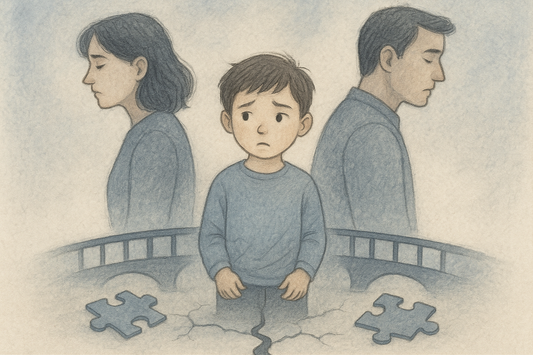Being called a narcissist by someone who actually is one can feel disorienting, infuriating, and even terrifying... especially if you’re still healing from the emotional chaos they caused, or if it's being used against you in court.
This is a common tactic used by Narcs, and it has a name: projection.
Let’s walk through why they do it, how it affects you, and what to do when it happens.

Why They Do It: The Power of Projection
Projection is when someone accuses you of the very behavior they’re guilty of themselves.
For narcissists, this tactic helps them:
- Avoid accountability. If you’re “the problem,” they don’t have to change.
- Confuse others. By painting you as unstable or toxic, they muddy the truth.
- Control the narrative. If they say it first (and loudly), others might believe them.
It’s not about truth. It’s about control.
How It Makes You Feel
When a narcissist calls you a narcissist, it hits hard.
Because you:
- Already second-guess yourself from years of gaslighting.
- Might fear that others will believe them.
- Are trying to heal... and this accusation pulls you right back into self-doubt.
Pause and breathe. This doesn’t mean it’s true.
In fact, if you’re questioning it, that’s usually proof you’re not one.
What to Do When It Happens
1. Don’t Defend or Engage
Trying to argue or convince them is a trap... it keeps you in their game.
- Give them no response at all.
- If you must reply, keep it short and factual:
“I’m not interested in name-calling.”
2. Document Everything
If you’re in legal or co-parenting situations, their accusation may be part of a smear campaign.
- Save texts, emails, voicemails.
- Write down incidents with dates and times.
- Stay calm and consistent in your communication... judges, mediators, and therapists notice this.
3. Stay Grounded in Who You Are
This is where healing comes in.
- Remind yourself of your empathy, compassion, and capacity for self-reflection. These are all things Narcs lack.
- Talk it out with safe friends or a therapist who can reflect reality back to you.
- Write down affirmations:
“Their words are not my truth.”
“I know my heart. I know who I am.”
4. Protect Your Reputation Quietly
If they are spreading false accusations to others:
- Don’t retaliate or launch a counter-smear.
- Simply show consistency, calmness, and integrity over time.
- People who matter will see through the performance.
5. Refocus on Healing
Their accusations are noise. Your healing is what matters.
- Limit contact or go no contact if possible.
- Prioritize self-care, therapy, and supportive communities.
- Rebuild your confidence in small steps... healing is the best thing you can do for you and for your kids if there are kids involved.
Don't let them disconnect you from you
When a narcissist calls you the narcissist, it’s not truth — it’s deflection.
It’s a way to keep the spotlight off their behavior and place the blame on you. And it's just another way to disconnect you from your truth... because when you doubt you... they win.
You don’t have to accept it.
You don’t have to defend yourself.
You don’t have to carry their projections as your identity.
You are who you choose to be... that choice belongs to you.
If you're coparenting with a Narcissist and are concerned that this type of projection is impacting your kids, it's important to get yourself and your kids support and help. Finding supportive communities and therapists that are aware of the Narcissistic dynamic is key (so always qualify your own and your kids' therapists by asking if they have experience with Narcissistic Abuse).
And finding ways that you and your kids can work together to stay grounded in self and self care is really important too. That's what my books do for kids and stable parents dealing with Narc Abuse. To find out more about how these books are helping tens of thousands of families survive and heal from Narc Abuse... click here.









